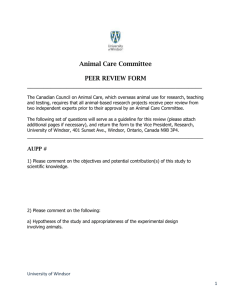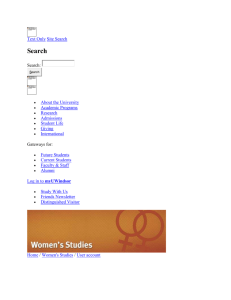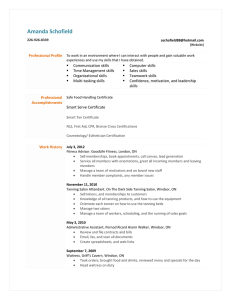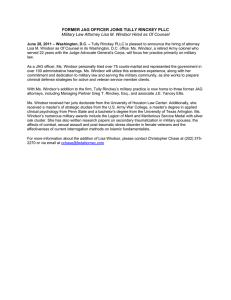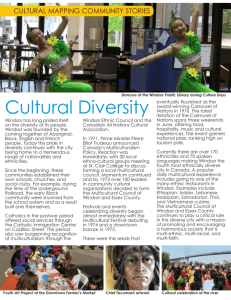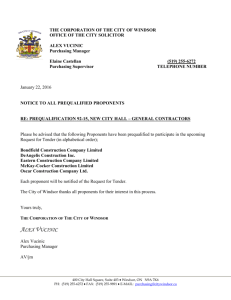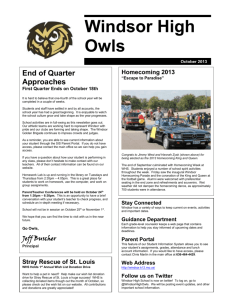Course Learning Outcomes Form
advertisement
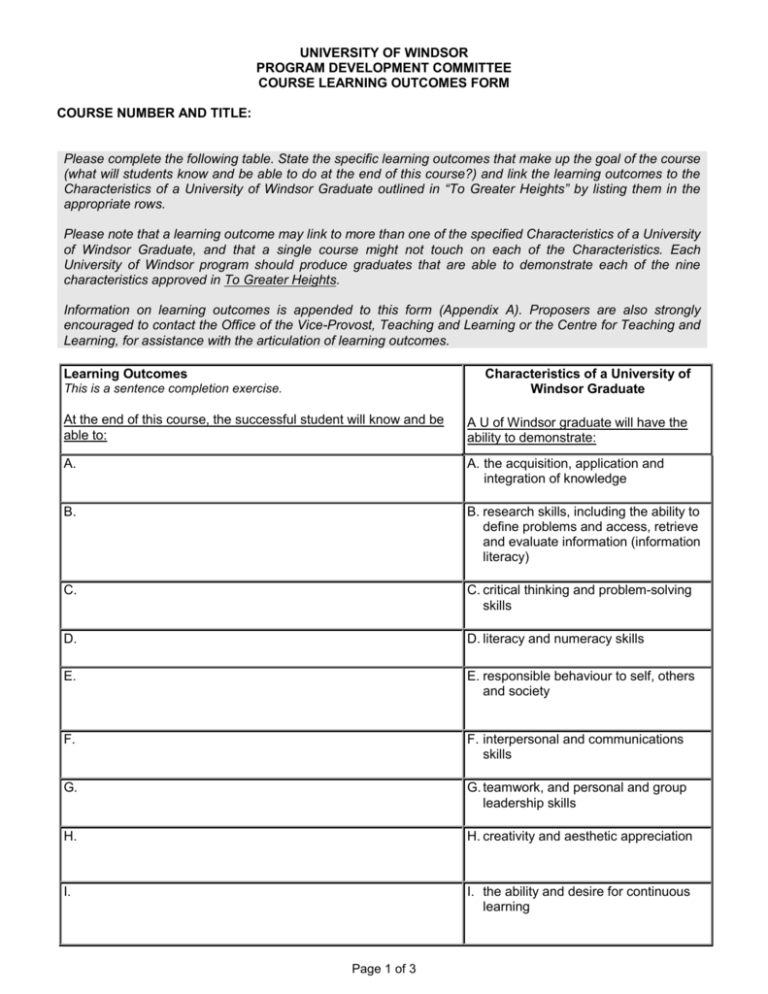
UNIVERSITY OF WINDSOR PROGRAM DEVELOPMENT COMMITTEE COURSE LEARNING OUTCOMES FORM COURSE NUMBER AND TITLE: Please complete the following table. State the specific learning outcomes that make up the goal of the course (what will students know and be able to do at the end of this course?) and link the learning outcomes to the Characteristics of a University of Windsor Graduate outlined in “To Greater Heights” by listing them in the appropriate rows. Please note that a learning outcome may link to more than one of the specified Characteristics of a University of Windsor Graduate, and that a single course might not touch on each of the Characteristics. Each University of Windsor program should produce graduates that are able to demonstrate each of the nine characteristics approved in To Greater Heights. Information on learning outcomes is appended to this form (Appendix A). Proposers are also strongly encouraged to contact the Office of the Vice-Provost, Teaching and Learning or the Centre for Teaching and Learning, for assistance with the articulation of learning outcomes. Learning Outcomes Characteristics of a University of Windsor Graduate This is a sentence completion exercise. At the end of this course, the successful student will know and be able to: A U of Windsor graduate will have the ability to demonstrate: A. A. the acquisition, application and integration of knowledge B. B. research skills, including the ability to define problems and access, retrieve and evaluate information (information literacy) C. C. critical thinking and problem-solving skills D. D. literacy and numeracy skills E. E. responsible behaviour to self, others and society F. F. interpersonal and communications skills G. G. teamwork, and personal and group leadership skills H. H. creativity and aesthetic appreciation I. I. the ability and desire for continuous learning Page 1 of 3 Appendix A: Information on learning outcomes and verbs to write learning outcomes Learning Outcomes (Excerpt from: “So What’s A Learning Outcome Anyway?”, Dr. M. Battersby, Centre for Curriculum, Transfer and Technology) Learning outcomes are the essential and enduring knowledge, abilities (skills) and attitudes (values, dispositions) that constitute the integrated learning needed by a graduate of a course or program. The learning outcomes approach to education means basing program and curriculum design, content, delivery, and assessment on an explicit identification of the integrated knowledge, skills and values needed by both students and society. This approach differs from competency based approaches in its emphasis on integration and the development of more general abilities that are often overlooked in a competency approach. It differs from more traditional academic approaches that emphasize coverage by its emphasis on • basing curriculum on what students need to know and be able to do as determined by student and societal needs not disciplinary tradition, • what students should be able to do rather than merely what knowledge they should possess as a result of a course or program, • making explicit the development and assessment of generic abilities. The determination of learning outcomes should be based on educators’ careful and broad analysis of what a competent graduate of the program should be able to do. As public educators we have the social responsibility to ensure that the education provided serves the long-term needs of the students and society. A thoughtful needs analysis recognizes that learning can be, and where appropriate, should be relevant to the variety of graduates’ roles included in their working, civic and personal life. Learning outcomes should express what the graduate should know and be able to do at the end of the course or program, whether or not this is a result of learning that takes place in the course or program, or is something that the student brought to the learning experience. Learning outcomes should be the basis for choosing curriculum content and instructional strategies. Curriculum should be “developed down” from the learning outcome ends to the curricular, pedagogic and assessment means. A key element in the learning outcomes approach is the role of assessment. Assessment choices give clear meaning to the more abstract formulations of the learning outcomes; stating learning outcomes clearly and providing evaluation based on explicit standards greatly facilitates student learning. Assessment tasks (assignments) should also be seen as a primary means of learning. Page 2 of 3 Verbs to Write Learning Outcomes Knowledge define list name recall record relate underline label quote locate match cite reproduce identify state Comprehension describe discuss explain express depict locate recognize report restate review translate Application apply demonstrate dramatize employ illustrate interpret operate practice schedule sketch use Analysis analyze appraise calculate categorize criticize debate diagram differentiate distinguish examine experiment inspect question relate solve test classify Page 3 of 3 Synthesis arrange assemble collect compose construct create design formulate manage organize plan prepare propose combine integrate Evaluation appraise assess choose compare estimate evaluate judge measure rate revise score select value defend justify
